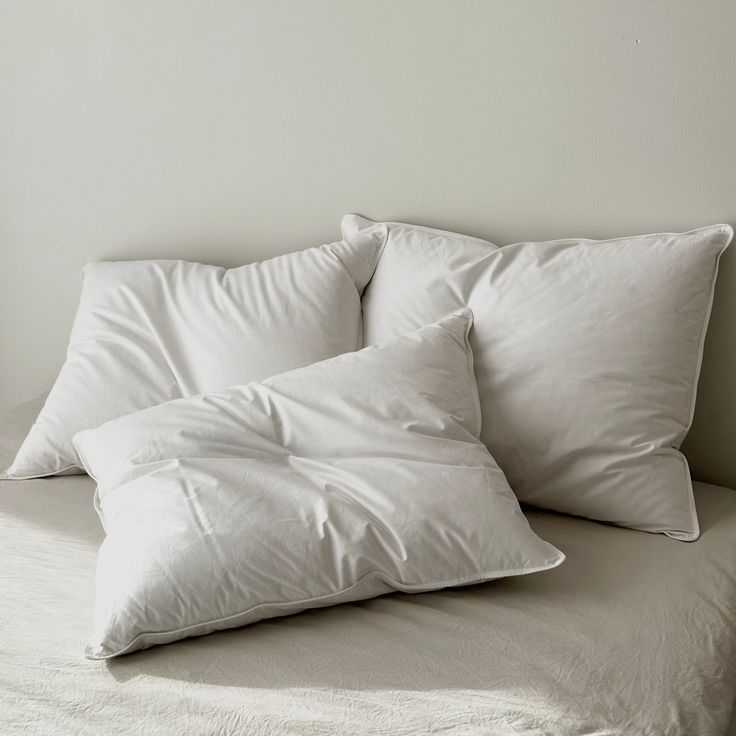Discover How to Choose a Right Pillow
A good night’s sleep is one of the most important factors for overall health and well-being, yet it’s something many people struggle to achieve. One often-overlooked element of sleep comfort is the pillow. The right pillow supports your head and neck, aligns your spine, and helps you wake up refreshed. Understanding how pillow materials, firmness, and height affect your sleep posture can make a huge difference. This article explores how to choose the right pillow for your needs, the science behind pillow ergonomics, and why investing time in understanding your sleeping position can lead to better rest and improved daily performance.

1. The Importance of Choosing the Right Pillow
Your pillow does much more than simply cradle your head at night. It plays a key role in supporting the natural curvature of your spine and ensuring proper alignment between your neck and shoulders. A pillow that’s too high or too flat can strain your muscles, causing stiffness, neck pain, or even headaches in the morning. On the other hand, a properly chosen pillow maintains a neutral alignment, allowing your body to rest and recover effectively. Studies have shown that the right pillow can reduce tossing and turning, improve sleep efficiency, and even enhance breathing during sleep.
2. How Your Sleeping Position Affects Pillow Choice
Everyone sleeps differently — on the back, side, or stomach — and each position requires a different type of support.
-
Back sleepers: A medium-firm pillow that supports the neck’s natural curve is ideal. Too high a pillow may push the head forward and strain the neck.
-
Side sleepers: A thicker pillow that fills the space between the ear and shoulder helps keep the spine aligned.
-
Stomach sleepers: A soft, low-profile pillow minimizes pressure on the neck and helps maintain a more natural posture.
Understanding your primary sleeping position helps narrow down the pillow type that’s most comfortable and beneficial for you.
3. Materials and Fillings: What’s Inside Matters
The filling of a pillow determines its feel, durability, and breathability. Common materials include:
-
Memory foam: Molds to the shape of your head and neck, offering strong support and pressure relief.
-
Latex: Naturally elastic and breathable, resistant to dust mites and mold.
-
Feather and down: Soft, lightweight, and adjustable, though it may lack firm support for some users.
-
Microfiber and polyester: Affordable, hypoallergenic options that are easy to maintain.
Each material has its strengths. The key is finding one that provides both comfort and proper spinal support for your needs.
4. Pillow Height and Firmness: Finding Your Balance
The right pillow height and firmness balance comfort with spinal alignment. If your pillow is too firm, it can create pressure points; if it’s too soft, your head may sink, leading to misalignment. A good rule of thumb is to ensure your head, neck, and spine form a straight line when lying down. Adjustable or layered pillows offer flexibility — you can modify their thickness to fit your personal preference or sleeping position.
5. The Science Behind Pillow Hygiene
Pillows accumulate dust, sweat, and skin particles over time, which can trigger allergies and affect sleep quality. Experts recommend washing pillow covers weekly and replacing pillows every 1–2 years. Some materials like latex and memory foam resist dust mites better, but regular maintenance remains essential. Clean pillows not only support better hygiene but also help maintain consistent comfort and performance.
6. Signs It’s Time to Replace Your Pillow
Even the best pillow doesn’t last forever. If your pillow has lost its shape, feels lumpy, or causes discomfort, it might be time for a replacement. Flattened pillows fail to provide adequate support and can lead to poor posture. Another indicator is when you start waking up with neck stiffness — often a sign that the pillow no longer aligns your head and neck properly.
7. Sustainable and Hypoallergenic Options
As more people become conscious of sustainability and health, eco-friendly pillow materials are gaining popularity. Organic cotton, bamboo fibers, and natural latex offer comfort with minimal environmental impact. Hypoallergenic pillows, designed to resist dust mites and mold, are excellent for allergy sufferers. Choosing such options supports both personal health and environmental responsibility.
8. Final Thoughts: Small Changes, Big Impact
Something as simple as changing your pillow can make a remarkable difference in how well you sleep and how you feel every day. Quality rest enhances focus, mood, and overall wellness. By understanding the science behind pillow support and selecting one that fits your unique sleep style, you can enjoy deeper, more restorative sleep night after night.